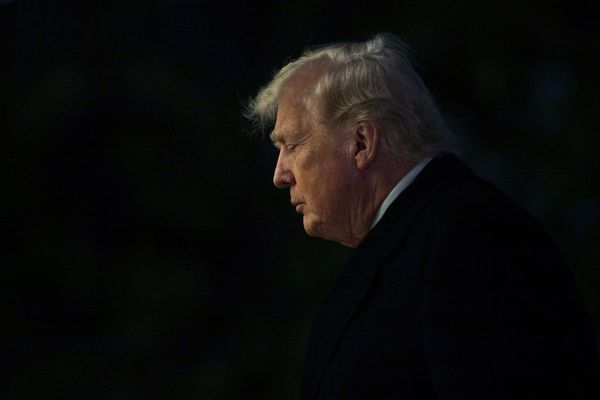
As the civilian death toll in Gaza continues to mount, a number of European Union leaders sought on Friday to use growing concern about Israel’s military offensive against Hamas to convince their partners to rally around a united call for a ceasefire.
“The killing of innocent civilians really needs to stop,” Belgian Prime Minister Alexander De Croo said. He said the EU must unite “if we want to play a serious role in that conflict, and I think we have to because we will be wearing the consequences if things go further in a bad direction.”
More than 18,700 Palestinians have now been killed, according to the Health Ministry in the Hamas-controlled territory, which does not differentiate between civilian and combatant deaths, since Hamas rampaged through southern Israel on Oct. 7.
Hamas killed about 1,200 people — mostly civilians — and took about 240 hostages.
The EU is the world’s biggest provider of aid to the Palestinians and has been trying to use its diplomatic leverage as a 27-nation bloc to encourage peace moves. But despite being Israel’s largest trading partner, the EU has mostly been ignored by Prime Minister Benjamin Netanyahu.
Beyond this, the members have long-been divided over Israel and the Palestinians. Austria and Germany are among Israel’s most vocal supporters. Their leaders went to Israel to show solidarity after the assault. Spain and Ireland often focus on the plight of the Palestinian people.
Hamas, for its part, is on the EU’s list of terrorist groups.
Since its attack, the bloc has struggled to strike a balance between condemning the Hamas attacks, supporting Israel’s right to defend itself and ensuring that the rights of civilians on both sides are protected under international law.
At the United Nations on Tuesday, an increasing number of EU members voted for a resolution calling for a ceasefire – a total of 17 – and fewer abstained. Still, Austria and the Czech Republic voted against.
“We now have a clear majority of countries here in the European Union calling for a cease fire. I think that’s the view of the people of Europe as well,” Irish Prime Minister Leo Varadkar said. “There’s no possible justification or excuse for what’s happening there.”
But Estonian Prime Minister Kaja Kallas was less categorical. “In (the) U.N. we were not united as a European Union. But we will hear the worries and like we always do try to work out the compromises,” she told reporters at the EU’s summit in Brussels.
The EU is more united around what should happen once the fighting stops for good.
Mindful that resentment and conflict in the wider Middle East and Gulf regions have been fueled by decades of Israeli-Palestinian tensions, the bloc is exploring ways to realize a long-held EU ideal — two states living peacefully side by side.
The EU has for years tried to promote the idea of an Israeli and a Palestinian state with borders set mostly as they were in 1967 — before Israel captured and occupied the West Bank and Gaza — with some land swaps agreed between them. Both would have Jerusalem as their shared capital.
Top EU officials concede that their international peace efforts so far haven’t been effective. This is the fifth war between Israel and Hamas, and the number of deaths in Gaza far exceeds the combined tally of those killed in the previous four, which is estimated to be around 4,000.
An internal discussion paper on the way ahead – a text seen by The Associated Press – insists that the EU must develop a “comprehensive approach.” Officials believe a “whole of Palestine” approach that has Gaza as part of a future Palestinian state remains the most viable option.
The capability of the Palestinian Authority, which governs the West Bank but not Gaza, is “of key importance for the viability and legitimacy” of a two-state solution. It noted that Arab states will only get involved if their efforts lead to “a genuine peace process that results in the two-state solution.”
EU efforts, the document said, should focus on support for an international conference, only “not as a singular event but as part of a peace process plan.” Israeli and Palestinian foreign ministers should be separately invited to EU meetings “to maintain the dialogue with both.”
But in the region, talk of a two-state solution conjures up images of years of diplomatic failures, and for many in mourning it’s simply too early to talk about peace.







